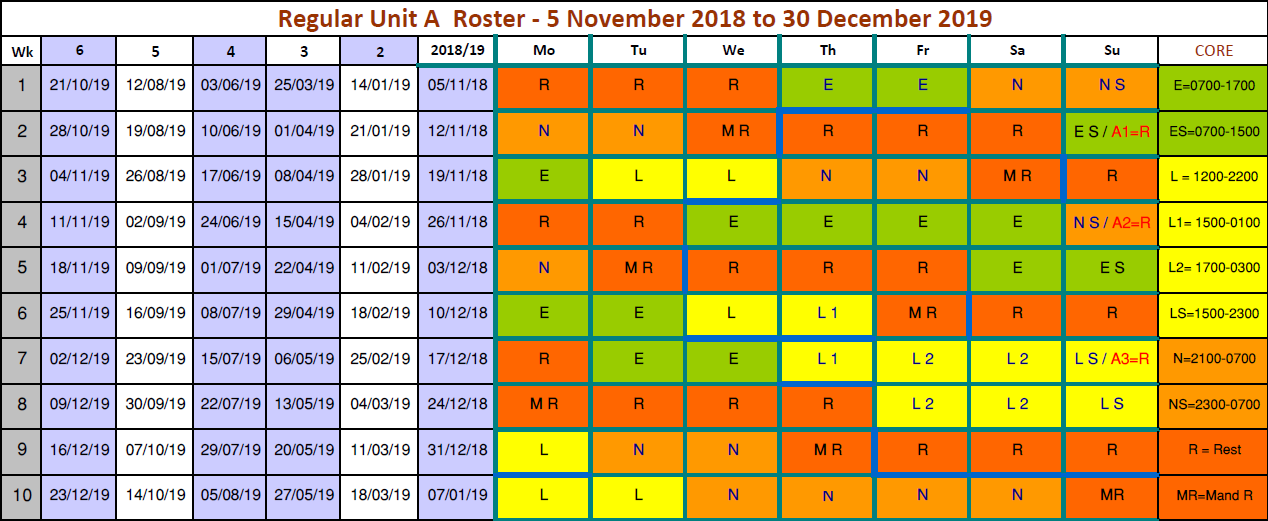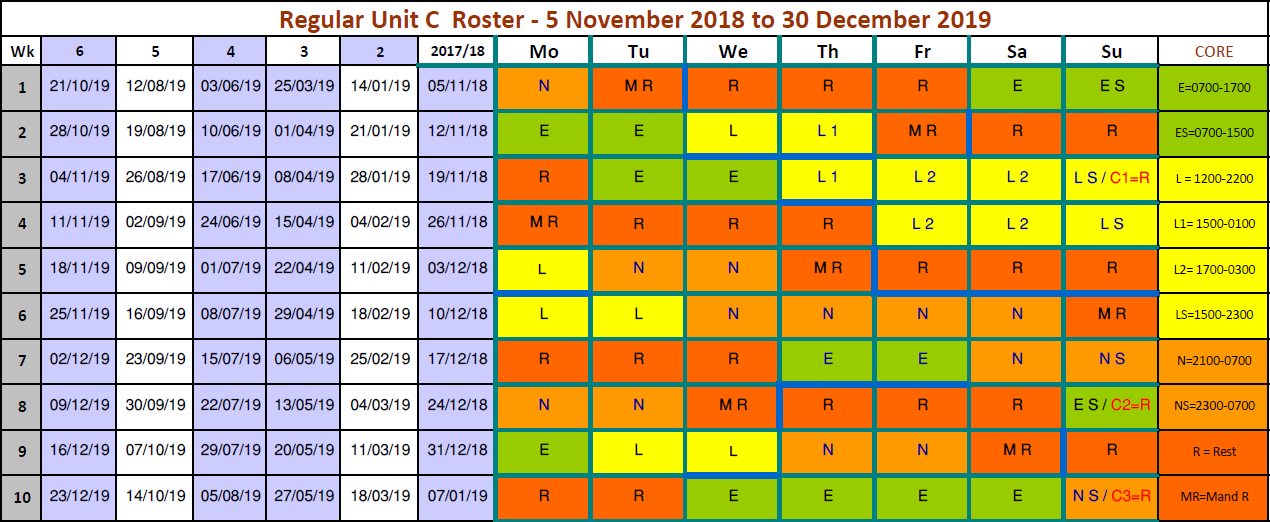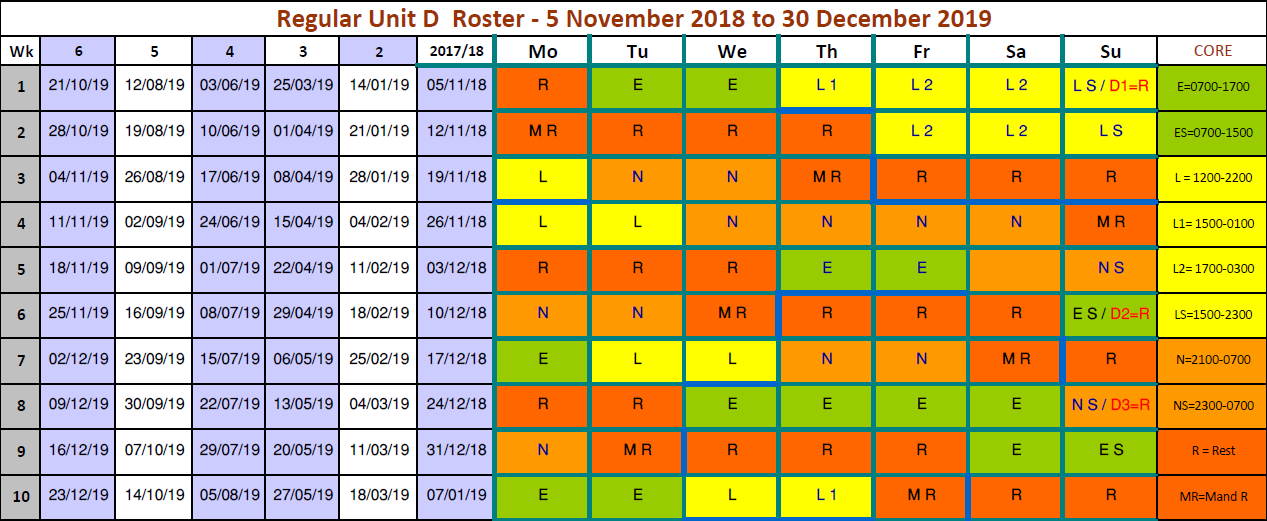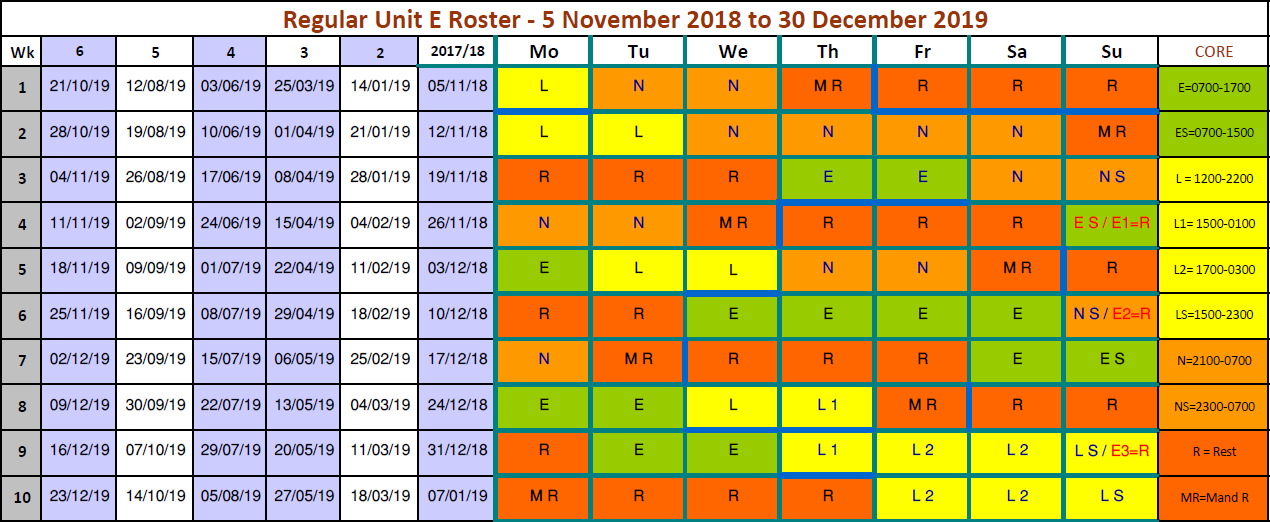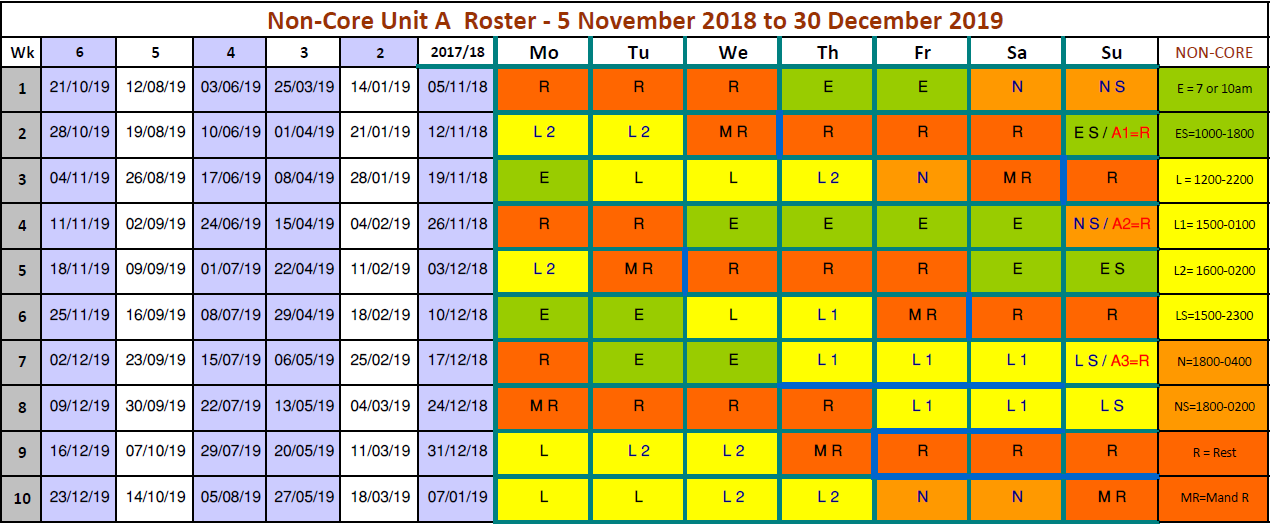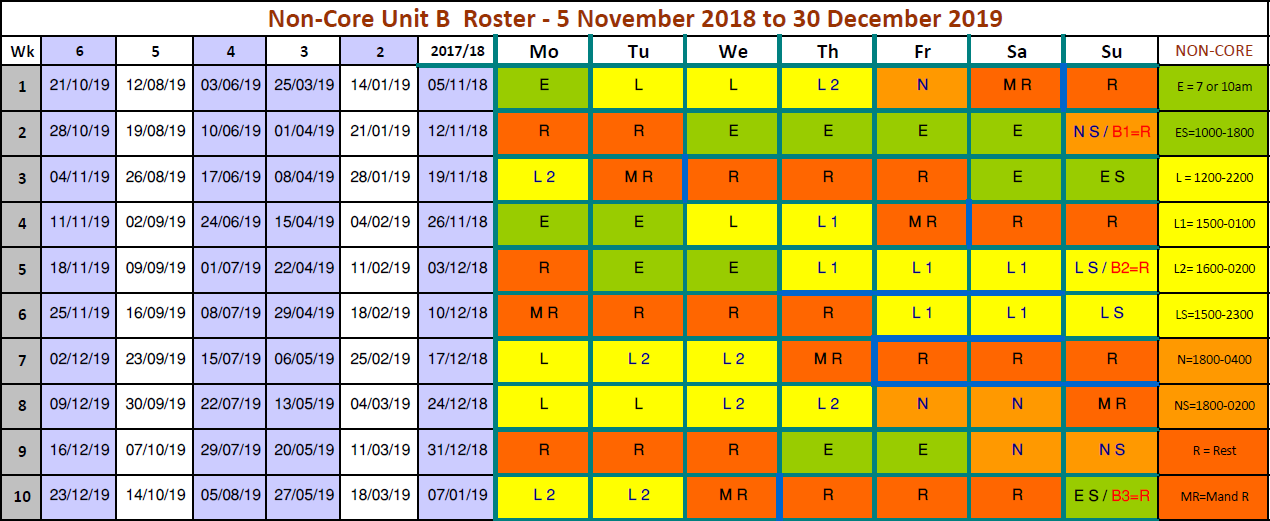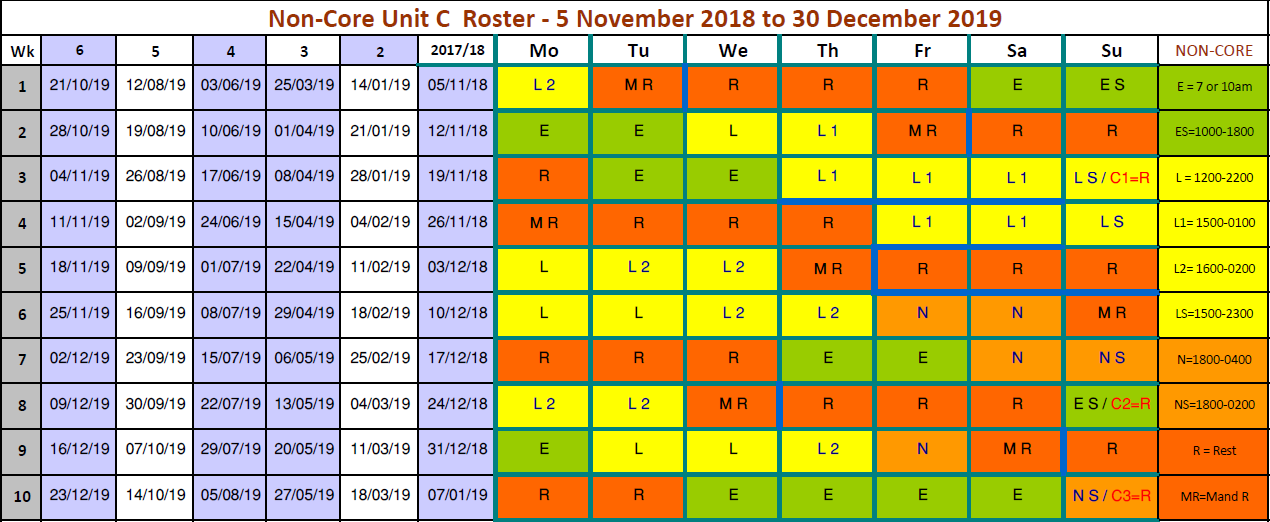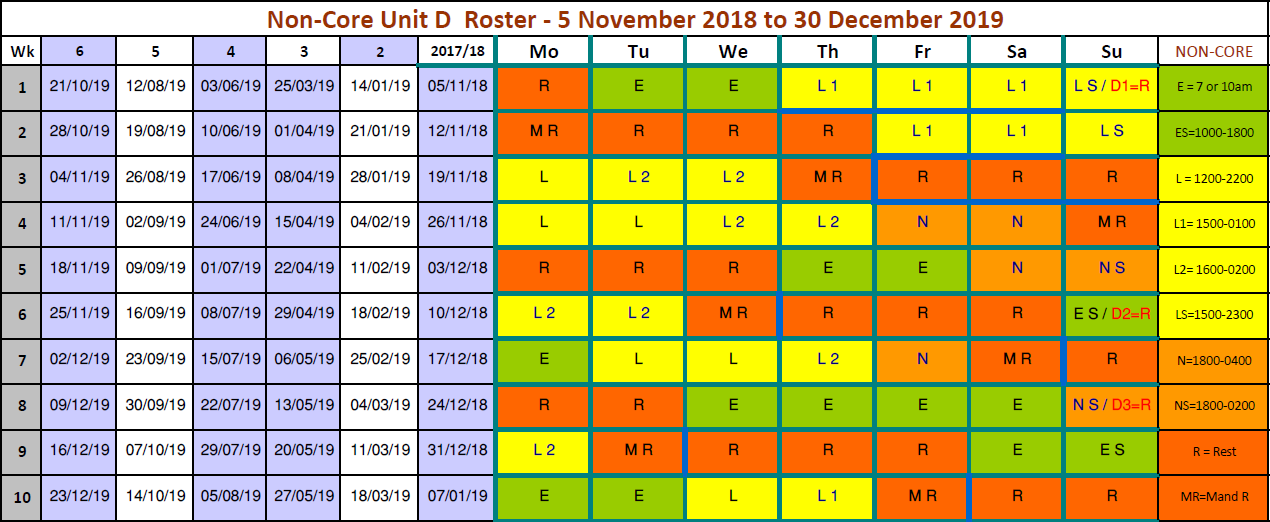info click on any of the topics below and the informaion will fold out
Information
Ordinary Retirement
A member may retire on reaching 50 years of age subject to having completed 30 years approved service.Members who joined prior to 14 June 1 983 and who will reach their 50th birthday before achieving 30 years of approved service may retire on or after 25 years of pensionable service if prior to 30 September 1983 they availed of an option to do so.A person who is appointed as a new entrant to the Garda Siochana on or after 1 April 2004 shall cease to be a member on attaining the age of 55 years, or at a later age up to the age of 60 years subject to the Commissioner being satisfied as to health and capability requirements.Female members who joined prior to 14 June 1983 may retire on reaching 50 years of age provided they have at least 25 years of approved service, unless prior to 30 September 1983 they opted out of this arrangement.Public Service Superannuation (Miscellaneous Provisions) Act 2004 refers.The statutory retirement age for members appointed prior to 1 April 2004 has been extended from 57 years to 60 years for all ranks with effect from 22nd December 2006. The ordinary pension entitlement amounts to half the annual rate of pay together with a percentage of certain qualifying allowances at retirement. A gratuity of one and a half times the annual rate of pay at retirement is also payable.The retirement gratuity is subject to a deduction in respect of unpaid contributions towards the Garda Contributory Spouses and Children’s Pension Scheme (see page 20).
Retirement prior to completion of 30 years approved service – Retirement at 50 years of age
Male members serving on 14 June 1983 were given the option on retiring at 50 years of age with 25 year’ service, provided they opted for this pension condition before 30 September 1 983. Those who opted had pension contributions increased to 2.5%. Female members serving on 14 June 1983 who were already on the 25 year pension condition were given the option of going on the 30 year condition provided they exercised the option before 30 September 1983. Those who opted for the 30 year condition had pension contributions reduced to 1.75%. Benefits are based on actual service.A Government decision to implement, with effect from 1 April 2004, further recommendations of the Commission on Public Service Pensions allows members who are fifty years of age or over, who could heretofore only resign with entitlement to preserved benefits payable at sixty years of 18 age, to retire and receive an actuarially reduced pension and lump sum with immediate effect. This provision also applies to members fifty years and over who are being dismissed. Full details are outlined in HQ Directive 130/2005. Members should note that the actuarially reduced pension rate applies throughout the lifetime of the payment of the pension. This pension is between 62% and 94% of persevered benefit which would be paid at 60 years of age and the lump sum is between 82% and 98% of the amount payable at 60 years. Members may still opt for preserved benefits which is calculated on actual service and not actuarially reduced and payable at 60 years of age.
Voluntary Retirement
A member who resigns voluntarily after two years’ service will, provided that member cannot benefit by carrying Garda service to another pensionable employment or otherwise, qualify for preserved pension benefits. Preserved pension and gratuity will be paid as from age 60 years upon application for payment being made. Where such a person dies before age 60 years a preserved gratuity based on actual service only will be payable. If he/she was a member of the Contributory Spouses’ and Children’s Scheme and leaves a spouse, he/she and any other of their children conceived before his resignation, will be eligible for pension in accordance with terms of the Contributory Scheme. Such pension will, however, be based on actual service only (credit will not be given for potential service). Any contribution due in respect of prior service reckonable under the Contributory Spouses’ and Children’s Scheme will be deducted from the gratuity or death gratuity. The preserved benefits will be based on actual remuneration as increased by reference to pension increases granted in the interim. Any contributions due under the Contributory Spouses’ and Children‘s Scheme will also be based on such pensionable remuneration. There is no right to re-employment in the Force following voluntary resignation or transfer of service but persons who leave the Force to join the United Nations Field Services, to pursue a religious vocation, to help run a family business when their help is essential or who have special skills may, subject to age, health and character consideration be allowed to re-join.
Retirement on Grounds of Ill Health
A pension and gratuity are payable to a person who is compulsorily retired from the Force on the grounds of ill health provided such person has at least 5 years approved service.The reckonable service for pension purposes of a member who retires, or is discharged on grounds of ill health, will be the aggregate of A and B following:
- Approved Service
- Added Service calculated on the following basis:
- Members with between 5 and 10 years actual reckonable service will be credited with an equivalent amount of added service subject to such credited service not exceeding the additional reckonable service which would have accrued if the member had remained in service up to the age at which he would be required to retire under Garda Retirement Regulations.
- Members with more than ten years’ actual reckonable service will be credited with the more favourable of:
- An amount of service equal to the difference between actual reckonable service and 20 years, subject to such credited service not exceeding the additional reckonable service which would have accrued if the member had remained in the service up to the age at which he/she would require to retire under Garda Retirement Regulations.
- Six years and 243 days (i.e. two thirds of a year) subject to such credited service not exceeding the additional reckonable service which would have accrued if the member had remained in service until the earliest age at which he could retire on pension. Where a member is entitled to added service such service shall not count for “double reckoning”. The pension shall not exceed one half of annual pay.
Pensionable Allowances
| Allowances reckonable for pension and gratuity purposes | ||
|---|---|---|
| Air Support Unit | Analysis | Collators |
| Change Management | Designated Post | Gaeltacht |
| Immigration Officer | Instructors | Interpol |
| Island | Minister(s) Driver | Ministerial Pool |
| PSV | Radio Technicians | Rent |
| Scenes of Crime | Motor Technicians | Substitution |
| Technical Bureau | Transport | Unsocial Hours |
| Water Unit | Welfare Officer | Dog Handlers |
As regards the pensionability of allowances, additional pensionable remuneration in the case of members of the Force who retire with approved service on and after 1 October 1982, is calculated by averaging over the three year period immediately preceding a member’s retirement the total amount paid in pensionable allowances or under recent agreement, for members who retire as and from the 1 April 2004, the best three consecutive years in ten years preceding retirement.
On 28 March 1994, agreement was reached at the Garda Conciliation Council which provided, inter alia, that unsocial hours’ allowances, i.e. Saturday, Sunday, Public Holiday and Night Duty allowances would be pensionable for members of the Force serving on or after 1 January 1994.It should be noted that unrostered unsocial hours’ allowances are not pensionable but premium payments are reckonable for pension purposes.
Pension Rate of Pay (TRR)
- A member who is on sick leave for more than one year, provided the illness is not the result of injuries received on duty will go on TRR rate of pay. A member who goes on sick leave at pension rate of pay will have that rate enhanced to the rate of pension that would be payable if the member had retired on the grounds of ill health on the day that sick leave at pension rate commenced, subject to a maximum rate of one half of the pensionable remuneration.
- Where a member goes on sick leave at the TRR rate of pay, then resumes and subsequently goes again on sick leave at pension rate of pay, or retires on grounds of ill health, reckonable service will be the sum of actual reckonable service at that time and of added service to which the member is then entitled to. If, however, this total is less than that on which sick leave on pension rate of pay was at any time based, the latter service will continue to apply.
- If a member retired on ill health grounds at or after the earliest stage at which the member could retire on pension and reckonable service would have been greater had the member retired on such grounds before that age, pension and gratuity would be computed by reference to such greater period of reckonable service. Sick leave at pension rate of pay does not reckon as approved service unless the absence was prior to 1 October 1976. Sick leave at full or half pay reckons as approved service with effect from 1 October 1976.
Special Pension
If the member is discharged from the Force on grounds of incapacitation due to injury received in the execution of his/her duty without fault the member shall be entitled to receive a special pension for life. This pension is based on the member’s service and the degree of incapacitation. The table on which these pensions are calculated is to be found as part of the First Schedule to the Garda Siochana Pensions Order 1925, as amended. Where a member is retired on such a special pension and has more than two years’ service at the time of such retirement, a gratuity is also payable. This is paid at the rate of 3/80ths of annual pay for each completed year of such member’s reckonable service up to 20 years and 6/80ths of salary for each year over twenty years up to a maximum of 30 years or 120/80ths.
Superannuation
Following agreement at Conciliation, members of Garda rank who are being dismissed or resign in order to pre-empt dismissal are now entitled to have their superannuation arrangements preserved. In essence this means that pension and gratuity arrangements are paid on a pro rata basis on the member reaching 60 years.
Survivors Social Welfare Contributory Pension
From 28 October 1994 a Survivor’s Contributory Pension which for the first time, gave both widows and widowers the same Contributory Pension entitlements replaced the existing Widow’s Contributory Pension. The Survivor’s Contributory Pension is a social insurance scheme, which is not means tested, and therefore entitlement is not affected by other income such as earnings, an occupational pension or a pension from your late spouse’s employment. A Survivor’s Contributory Pension may be based on either your own or your late spouse’s PRSI record. Entitlement to Social Welfare pension is established through payment of pay related social insurance (PRSI) contributions. In order to retain eligibility for widow/widower and/or dependant Children‘s Social Welfare pension or allowances, retired members should, up until they are 66 years of age, either:
- take up other insurable employment;
- become a voluntary contributor, or;
- register as unemployed at the local employment exchange.
- Garda Contributory Spouses’ and Childrens’ Scheme
Garda Contributory Spouses’ and Childrens’ Scheme
In addition to Social Welfare entitlements, a Garda spouse and/or a deceased member’s dependent children may benefit under the Garda Contributory Spouses’ and Children’s Scheme. While membership of the scheme is compulsory for all members who joined the Force on or after 1 January 1972, it was not compulsory for members who joined prior to that date. Garda Spouses’ pensions under this scheme are calculated on the basis of their late spouse’s annual rate of pay or half his rate of pension. Children’s pensions are paid at the rate of one third of the Spouses’ pension per child to a maximum of three children. Orphaned children will be eligible for the pension which the spouse would have received had she/he lived, in the proportions of two thirds of that pension where there is only one child or the whole of that pension where there are two or more children. In cases of permanent invalidity, a child’s pension will continue as long as the child is incapable of maintaining himself or herself provided he/she was invalided before reaching age 16, or if in full time education, age 22.Pension benefits are provided for certain categories of dependants of those members who opted for inclusion and who were excluded from the scope of the existing scheme and are operative from the 1 September 1984. They are:
- • the spouse and the children of a member who marries after retirement;
- • children of persons not married to each other;
- • children conceived after a member’s retirement;
- • children of a member whose spouse died before his/her membership began.
Members make contributions of 1 .5% to the Garda Spouse’s and Children’s Contributory Scheme. A total of 40 years’ contribution is required. Contributions began on 1 January I972.Where a member has contributed less than 40 years contributions to the scheme he is required to make good the difference from his retirement gratuity at the rate of 1 % of his annual pay for each year’s contributions that he has to make up.
A member who, on reaching retiring age, has only contributed to the scheme for, say, 10 years will have to make good the other 30 years contributions. These will be deducted from the retirement gratuity by way of a lump sum equal to 30% of one year’s salary. On application, a member may arrange to pay additional contributions and thus reduce this latter deduction from retirement gratuity.
It is understood from the Revenue Commissioners that income tax relief on these contributions is calculated in accordance with Section 17(2) (ii) of the Finance Act, 1972 and that five years is the period specified. In other words the amount of the lump sum deducted is spread over the five tax years before the year in which a member retires.
Transfer of Pension Rights
Service of members transferring from other Public Service positions to the Garda Siochana or vice versa is reckonable for pension purposes. In the case of such transfer three quarters of previous service is reckonable for pension purposes except in the case of transfer between Garda Siochana and Prison Service where special provisions apply because of the thirty-year service required for pension purposes. Members retiring at 60 years of age will benefit from any general pay increase which falls due within three months of date of retirement.
Pay Allowances for Pension – Best three consecutive years in the ten years preceding retirement
The Association was successful at Conciliation to have the reckoning of unsocial hours and pay related allowances for pension purposes calculated on the “best three consecutive years in the ten years preceding retirement. This will apply to members who retire (have retired) as of 1 April 2004.
Pension and Retirement Gratuity
Pension and Retirement Gratuity are calculated on a member’s pensionable remuneration which is the sum of basic pay on the date of retirement and pensionable allowances. Pensionable allowances are calculated on the yearly average of the best three consecutive years out of the last ten years of service. Pension is half of pensionable remuneration. Retirement gratuity is one and a half times pensionable remuneration.
Annual Leave
A member of the Force of Garda rank is entitled to 104 rest days and 34 other free days (annual leave) per year, excluding absences through illness or by way of special leave, e.g. sympathetic leave, transfer leave. A Garda therefore, works 227 days (1,816 hours) (of 8hrs shifts or equivalent) per annum. Public Holidays when they fall to be so rostered are regarded as working days save that they command a special allowance. Subject to certain conditions, annual leave may be availed of in half days. Garda Síochána Code – Chapter 11 refers. Members in Designated Posts, who are not normally rostered for duty on Public Holidays, have, as a result, less control over the way in which they avail of their own free days. While a member who is rostered to work a public holiday which falls on a rostered working day can avail of all other free days by way of annual leave, a member who is not normally rostered for duty on a Public Holiday, has, in effect, less free days that may be taken as annual leave. This reduction in the number of free days which may be taken as annual leave, is , in part, compensated for by the grant to the member concerned of an extra four free days per annum. Such members have 104 rest days (weekend days) and 38 other free days per annum. Their entire yearly work requirement, excluding absences through illness or by way of special leave, is 223 days (1,784 hours) Carry-over of annual leave – Section 8.4 of WTA (Garda Siochana Code 11.19) Where by reason of maternity leave, illness or injury or where a member has applied for annual leave and, because of the exigencies of the service, the application is refused and the member cannot avail of his/her annual leave entitlement within the leave year, that member shall have the unused portion of his/her annual leave entitlement carried over in full into the next annual year. Other than the areas as outlined above, annual leave will not be cancelled save in exceptional circumstances.
Sympathetic Leave
Sympathetic leave with pay applies as follows:
- 20 working days on the death of a spouse (including a cohabiting partner), child (including adopted children and children being cared for on the basis of ‘in loco parentis’) or any person in a relationship of domestic dependency, including same sex partners.
- 5 working days in the case of other immediate relatives. For the purpose of bereavement leave “immediately relative” means father, step-father, mother, step-mother, brother, step-brother, half-brother, brother-in-law, sister-in-law, father-in-law, mother-in-law, son-in-law, daughter-in-law, grandfather, grandmother or grandchild of a member; or
- One working day in the case of an uncle, aunt, nice or nephew.Please refer to HQ Directive 60/2014 for details in relation to exceptional circumstances and travel abroad.
Special Leave
Special leave without pay may be granted in the following circumstances: In special circumstances a member may apply for special leave without pay. Such leave may be granted for a period for two months. In certain circumstances this leave may be extended to six months depending on the circumstances of each application. Examples of circumstances where special leave may be granted would be as follows:
- Urgent domestic affairs
- Serious illness of an immediate relative
- Following the birth of a child by a surrogate mother. HQ Directive of 52/16 of 26/08/16 refers.
Special leave without pay shall not count for the purposes of superannuation
The term “immediate relative” shall in context of these arrangements mean father, mother, brother, sister, child, father in law and mother in law. It also means husband or wife where special provision is not made for the spouse
Maternity / Adoptive Leave
The duration of maternity and adoptive leave has been increased in accordance with the Maternity Protection Act 1994/2004. The new leave arrangements are effective from 1 March 2007. Members are entitled to 26 weeks paid maternity leave and 16 weeks unpaid maternity leave. Paid adoptive leave is 24 weeks and unpaid adoptive leave is 16 weeks. HQ Dir. 30/06 of 27 February 2006 refers. See also HQ Dir 159/05 on the safety and health of pregnant members. A number of other improvements to maternity protection legislation are as follows:
- A new provision reducing the compulsory pre-confinement period of maternity leave from 4 weeks to 2 weeks.
- Provision for expectant mothers to attend one set of ante-natal classes without loss of pay (except the last 3 classes in a set). Provision for a once-off right to fathers paid time off to attend the two ante-natal classes immediately prior to the birth.
- Provisions for breastfeeding mothers to have given birth within the previous 6 months with an entitlement, without loss of pay, to either an adjustment of working hours or where breastfeeding facilities are provided by the employer, breastfeeding breaks.
- Provision for termination of additional maternity leave (subject to agreement of employer) in the event of illness.
- Provision for an employee to postpone the period of maternity leave/additional maternity leave (subject to the agreement of the employer) in the event of the hospitalisation of the child. Leave may only be postponed after 14 weeks maternity leave has been taken.
- Provision that an employee’s absence from work on additional; maternity leave will count for all employment rights associated with the employment (except remuneration and superannuation benefits) such as seniority and annual leave.) See HQ Dir 13/12 dated 9 Feb 2012. Revised procedures for processing paid maternity leave and in relation to refund from Department of Social Protection. Notification of maternity leave with accompanying MB10 form where applicable should be forwarded to the Superintendent who shall submit for processing and onward transmission to the Department of Social Protection. Members should not put their own details as the payee on the form.
Paternity Leave
The Paternity Leave and Benefit Act 2016 commenced on 1 September 2016 and applies to members of An Garda Síochána. The new legislation introduces a single period of two weeks paternity leave with pay. Paternity leave enables relevant parents to provide, or assist in the provisions of care to a child or to provide support or the relevant adopting parent or mother of the child, as the case may be or both as set out in section 6(1) of the 2016 Act. This leave will be available to all members, however, only one relevant parent, in relation to a child, (other than the mother of the child) may apply for this leave. At least four weeks’ notice should be given by a member of his/her intention to take Paternity Leave. Paternity Leave will be granted in respect of the birth or adoption of a child on or after 1 September 2016. See HQ Dir 58/16 of 6 October 2016
Parental Leave
Eligibility
The legal provisions governing the granting of Parental Leave are set out in the in the Parental Leave Act 1998 and Parental Leave (Amendment) Act 2006. The Act also makes provision for “Force Majeure” Leave. The general provisions of the Act are set out hereunder:
- Parental Leave comprises of the following:
- Every member who is a parent is entitled to 18 weeks parental leave.
- The maximum age for any eligible child is 13 years of age.
- Parental leave entitlements are extended to persons acting in loco parentis in respect of an eligible child.
- In the case of children with disabilities the maximum age of an eligible child is 16 years.
- Only 14 weeks of the 18 weeks can be transferred between qualifying parents where both parents are employed by the Commissioner of An Garda Síochána.
- Where an adopted child is more than three and less than eight years old, leave must be taken within two years of adoption order. Where adopted child is less than three years leave must be taken before the child is eight years.
The manner of taking parental leave must be agreed with the District Officer; in other words it can be varied and may be availed of in weekly periods or as individual days, etc.
Parental leave is restricted to not more than 18 weeks in any 12 month period unless the Garda Commissioner waives restriction. Multiple births have no such restriction. Public holidays, which fall during parental leave are added on at the end of such leave. HQ Directive 43/2013 refers.
Parental leave is unpaid but a member retains his/her employment rights other than the right to remuneration and superannuation benefits. Parental leave does not affect a mothers’ rights to maternity leave.
Notice of an intention to take parental leave must be given in writing within six weeks or as soon as is reasonably practicable of intention to avail of leave. Such notice will specify dates of commencement, duration and manner of taking such leave.
The processing of Parental leave, Career Breaks, Shorter Working Year, Work Sharing, Carer’s Leave Maternity special paid & unpaid leave transferred from HRM Garda HQ to Garda Civilian HR Directorate, Athlumney House, IDA Business Park, Johnson, Navan, Co. Meath – Tel. 046 903 6842, 046 903 6806, 046 903 6821, 046 903 6809.
Parents Leave and Benefit Act, 2019
The Parents Leave and Benefit Act, 2019 provides a statutory entitlement to both Garda members and Garda Staff whose children are born or adopted from 1st November 2019.
The Act provides for a new scheme of leave for Parents called “Parents Leave” which is in addition to the existing schemes such as Maternity, Adoptive, Paternity and Parental leave. The scheme allows each parent of a child who is born, or adopted, from 1st November, 2019 to take 2 weeks leave. The leave can be taken as a single two week block (14 days) or two blocks of a single week (2 x 7 days).
- The following conditions apply in relation to Parents leave:
- The leave must be taken within one year of the birth of the child or one year following placement of the child in the case of adoption.
- The leave can only be postponed in the event of the hospitalisation of the child.
- The leave cannot be transferred between Parents (either in whole or in part), although there is an exception to this in regard to the death of a parent.
- In circumstances of multiple births or where 2 or more children are adopted, only one period of Parents leave will apply to each parent.
- At least 6 weeks’ notice is required to be given by both Garda Members and Staff advising his/her intention to take Parents leave.
Application must be made at least 6 weeks in advance of the intended start date
Parents Leave is salary affected. An Garda Síochána does not pay a salary top up to Members and Staff availing of this leave
Members and Staff of An Garda Síochána who avail of Parents Leave will be entitled to a Parents benefit payment (currently €245 per week) from the Department of Employment Affairs and Social Protection (DEASP).
To apply, members go through the normal channels using the application form included in H.Q. Dir 08/2020. That form must be signed by your line manager at district officer or equivalent level and then forwarded to HRM.Familyfriendly@garda.ie. Alternatively, a form can be requested from the Parents Benefit Section in DEASP by email at Parentsben@welfare.ie or by calling 1890 690 690.
- When submitting the application you will need to forward on one of the following documents:
- Medical certificate confirming the expected due date
- A certified copy of the birth certificate for retrospective applications
- In the case of Adoptive Leave, a certified copy of either the Certificate of Placement or An Adoption Declaration of Eligibility and Suitability (‘Adoption Order’)
Members should address queries in relation to Parents leave to Family Friendly Section, HR Directorate, Athlumney House, IDA Business Park, Johnstown, Navan, Co. Meath. C15 DR90
Email address: HRM.Familyfriendly
Full details of the scheme and how to apply for Parents benefit are provided in H.Q. Dir 08/2020.
Force Majeure Leave
The Parental Leave Act, 1998 also provides for leave on grounds of Force Majeure. Force majeure leave is paid leave, which is granted to members in cases of family emergencies resulting from injury or illness of a close family member. It is separate from parental leave. It amounts to three days in any 12 consecutive months or five days in any 36 consecutive month period.
A member may avail of this leave where, owing to injury or sickness of a family member, he/she is indispensably required to attend at the place where the family member is. Family member is defined as a child, spouse or person with whom the member is living as husband or wife, same—sex partners, a person to whom the member is in loco parentis, brother or sister, parent or grandparent. Where such leave is availed of the member must, as soon as is reasonably practicable thereafter, confirm in writing that he/she has availed of such leave.
Included will be the dates the leave was taken and the facts outlining his/her entitlement to avail of such leave. Members who wish to avail of parental and/or force majeure leave may make application to their immediate superior. HQ Directive 21/99 and 182/00 refer.
Pay While on Sick Leave
The Public Service Management (Sick Leave) Regulations 2014 came into effect on 31st March, 2014 which set out the terms of the new Public Service Sick Leave Scheme that applies across the Public Service including members of An Garda Síochána. The New Scheme provides for a maximum of 92 days sick leave on full pay in a year followed by a maximum of 91 days sick leave on half pay subject to a maximum of 183 days paid sick leave in a rolling four year period. Members who have exhausted 183 days sick leave in a rolling 4 year period and continue absent or are on sick leave again may be granted Temporary Rehabilitation Remuneration (TRR) for a further 548 days. TRR used to be referred to as “pension rate of pay” and will be calculated the same way. TRR will only be available when there is a realistic prospect that you will not be able to return to work following your illness. Medical certificates must include “the reasonable probability of the member returning to work”. Critical Illness – The criteria for assessing whether someone is eligible for sick leave remuneration in respect of a critical illness or injury as provided for in Part 4 of the Regulations are set out in the Critical Illness Protocol CIP which is available on the Portal. A member is entitled to a maximum of 183 days on full pay in the year, followed by a maximum of 182 days on half pay subject to a maximum of 356 days paid sick leave in a rolling four year period. Members who have exhausted 356 days paid sick leave as above may be considered for a maximum of 265 days TRR in the first instance. Management may then consider paying TRR fir a further period of time not exceeding 730 days, This is subject to 6 monthly reviews. HQ directive 43/14 of 29/05/14 and S.I. No. 124 of 2014 refers. See also HQ Directive 21/15 of 30/03/15 and HQ Directive 97/15 of 09/12/15.
Garda Sickness Abuse Section Athlumney House, Navan – Phone : 046 903 6877, 046 903 6878, 046 903 6879
Premium of Payments
When is night duty payable and how is it calculated?
Night duty allowance is now payable in respect of duty worked between 6.00 p.m. and 8.00 p.m. at time and one sixth. The allowance is payable in respect of each hour worked
Basic Weekly Pay ÷ 246 = per hour worked
For Example:
€935.60 ÷ 246 = €3.80
Night duty allowance is payable in respect of duty between 8.00 p.m. and 8.00 a.m. at time and one quarter.
Basic Weekly Pay ÷ 164 = per hour worked
For Example €936.60 ÷ 164 = €5.70
For a member on a salary of €48,819.55 p.a. or €935.60 p.w. , the hourly rate of night duty allowance between 6.00 p.m. and 8.00 p.m. would be € 3.80 and between the hours of 8.00 p.m. and 8.00 a.m. would be €5.70.
Saturday
What is the rate of Saturday allowance?
The allowance for working on Saturday is € 15.02 effective from 1 June, 2007. The allowance for working on Saturday to Gardaí for whom Class A PRSI applies, is €15.54 effective from 1 June 2007.
Sunday
How is the Sunday allowance calculated:
The allowance in this case varies according to rostering arrangements, that is whether the Sunday falls on:
- rostered working day, or
- rostered rest day
Examples
Presume a member’s basis weekly pay is €935.60 p.w., (€48,819.55 per annum) and hours worked (Sunday = eight hours)
Case (a):
(Basic Weekly Pay ÷ 5) €935.60 ÷ 5 = €187.12
The Premium, therefore is €187.12 for the day
Case (b):
(Basic Weekly Pay x 2/41 per hour worked x hours worked)
€935.60 x 2/41 = €45.64 x 8 = €365.12
The Premium, therefore is €365.12
note For reasons which derive from the terms of an old agreement, an hour’s overtime payment is calculated as being 1/41st of weekly pay.
Payments of Additional Increments
Additional increments are payable to a Garda who hold any of the following qualifications on appointment to An Garda Síochána.
- (F Code 13.10)(i) One Additional increment in respect of at least one Grade B and two Grade C in three subjects (which must include Mathematics and English or Irish) at honours level in the Established Leaving Certificate Examination or Leaving Certificate Vocational Programme; or
- (F Code 13.10)(ii) Three additional increments in respect of a Diploma or Degree from a third-level educational institution. The Degree/Diploma must be full time, of two/four year duration, and be awarded by a third level institution recognised by the H.E.T.A.C., or recognised Irish statutory authority
On successful completion of two years service, members may apply through the channels for these increments to Assistant Commissioner Human Resource Management.
Public Holiday
How is duty on a Public Holiday calculated?
Duty on a Public Holiday is compensated for in the same way as duty on a Sunday. However, if a member works four hours or more on a rest day, which is also a public holiday, in addition to receiving overtime for it at double time, the member gets another free day.
Overtime
Ordinary Overtime on a day other than a Sunday or Public Holiday is calculated at the rate of 3/82nds of basic weekly pay per hour. €935.60 x 3/82 = €4.23 per hour
Full details are contained in the GRA Circular of 11/10 of 20th May 2013 and HQ Directive 61/13 of 12th July 2013 and HQ Dir 80/13 (FAQ) of 24th September 2013 refer.
Work Sharing
The purpose of introducing Work Sharing in An Garda Síochána is to enable members who are unable to work on a full-time basis due to other commitments to continue in a full career. Subject to the exigencies of the service, there are no restrictions as to the work patterns that the member can follow (this is subject to the member and the Superintendent reaching agreement).
The member can negotiate working a number of ways e.g. four hours per day; or one full week on/one full week off or work three days one week and two days the next week, or work 10 days out of twenty working days in a roster. Work sharing staff will be eligible for superannuation benefits on the same basis as full-time staff, save that each year of service given in a work-sharing capacity will reckon as six months service for superannuation purposes.
If the member has not completed 30 years approved service and has not reached the compulsory retirement age the pension benefit will be deferred until 60 years of age. On compulsory retirement regardless of service pension will be paid immediately. Both deferred and immediate pension payments are calculated on actual service.
The requirement to work 40 hours per week before overtime can be claimed has been removed. The Scheme now allows for overtime to be claimed for extra attendance which is in excess of 8 hours in any one tour of duty. This will also apply to Saturdays, Sundays and Public Holidays All allowances in the nature of pay will be paid on a pro rata basis when work sharers are required to work on their work sharing rest day, as work sharers will not qualify for overtime in this instance, and will be performing the role to which their allowance applies. HQ Directive 34/11 and Agreed Report 703 refer. HQ Directives
Shorter Year Working Scheme
Shorter Working Year for 2014 is available in periods of 2, 4, 6, 8, 10 or 13 consecutive weeks. The leave may be taken as one continuous period, or over a maximum of three separate periods each consisting of not less than two weeks. Members should note that where they avail of more than one period of this leave then the total available leave will not exceed 12 weeks, e.g. 2 weeks + 4 weeks + 6 weeks = 12 weeks. Therefore, members should note that 13 weeks leave may only be taken in one single period.
The period of term time shall be unpaid special leave. To be eligible for participation in the Scheme, a member must have completed at least 12 months continuous service, post attestation and have been confirmed in their appointment, before the commencement of leave. HQ Directive 76/2015 of 11 September 2015 refers.
Harassment, Sexual Harassment and Bullying in the Workplace
If you experience bullying, harassment or sexual harassment please contact your CEC representative. You can read and download the Garda Siochana Policy on Harassment Sexual Harassment and Bullying in the Workplace above.
Employee Assistant Service
Address: 16 Parnell Square East, Dublin 1
Phone: 01 666 0390
| Name | Area of Cover | Phone Number |
|---|---|---|
| Superintendent Della Murray | Tel: 01 666 0390 Mobile: 086 828 1683 Email Della |
|
| Sergeant Clare Malone | Tel: 01 666 0390 Mobile: 086 828 2572 Email Clare |
|
| Kieran Jackman | DMR South; DMR East; Harcourt Sq |
Mobile: 086 828 2569 Email Kieran |
| VACANCY | DMR North; DMR West; Meath |
|
| Sandra Flood | DMR North Central; DMR South Central; Garda H.Q.; Traffic |
Mobile: 087 790 2740 Email Sandra |
| Anne Kissane | Tipperary; Garda College |
Mobile: 086 828 2570 Email Anne |
| Cathal O'Toole | Cavan / Monaghan; Louth |
Mobile: 086 858 2287 Email Cathal |
| Brian Tuohy | Donegal; Sligo / Leitrim |
Mobile: 086 828 2571 Email Brian |
| Morgan Landy | Cork West; Kerry |
Mobile: 086 828 1790 Email Morgan |
| Lorraine Walsh | Galway; Mayo; |
Mobile: 086 828 2545 Email Lorraine |
| Marion Brennan | Westmeath; Roscommon / Longford; |
Mobile: 086 828 2547 Email Marion |
| Michael Quinn | Waterford; Wexford; |
Mobile: 086 828 2546 Email Michael |
| Mary O'Dwyer | Kilkenny / Carlow; Wicklow |
Mobile: 086 858 0849 Email Mary |
| Lorna Garland | Kildare; Laois / Offaly |
Mobile: 086 857 6852 Email Lorna |
| Stephen Ryan | Clare; Limerick |
Mobile: 087 050 1730 Email Stephen |
| Ciaran McArdle | Cork City; Cork North |
Mobile: 087 980 0573 Email Ciaran |
Visits to General Practitioners
A new Doctors’ Payments Scheme came into effect on 1 January 2012. Under this Scheme members can attend a doctor from an established panel. Where a member visits a doctor from the panel they are not required to pay the doctor rather the doctor will be paid from a central fund. In order for the doctor to receive payment the member must complete a certificate of attendance at the time of consultation. HQ Directive 135/2011 refers.
Where a member visits a doctor who is not registered on the Garda panel of doctors’ they must pay the doctor directly for the consultation and may seek reimbursement through normal channels. Reimbursement of doctors’ fees is processed through the payroll and is subject to both income tax and USSC charges.
For this reason, members are urged to ensure that their doctor is registered on the panel A list of participating general practitioners is available on the Garda Portal.
How does the Career Break system operate?
Members who have completed probation and who have not reached the minimum retirement age (normally 50 years of age) may apply for special leave without pay for a career beak. Career breaks will be for a minimum of one year and a maximum of five years. Career beaks may be granted in the following circumstances — pursuit of further education; domestic responsibilities, child minding and travel abroad. HQ Dir 61/2014 refers.
Pension rights are affected by career breaks and such breaks do not count towards superannuation benefits. Special provisions apply to members availing of a career break who wish to continue cover under the Life Assurance Scheme and GRA Critical Illness Scheme and it is incumbent on the individual to make arrangements prior to departure.
Cycle to Work
An Garda Siochana is operating the Cycle to Work Scheme which allows members to purchase a new bicycle and equipment up to a maximum value of €1,000.The price of the bicycle and associated equipment is reimbursed by deducting the cost over a twelve month period from gross salary. The member will not pay tax, PRSI on the remuneration sacrificed as the legislation permits the benefit in kind exemption to apply in the context of salary sacrifice. HQ Directive 98/09 of 26 June 2009 refers.
Travel Pass Scheme for Members
Members may now avail of the Travel Pass Scheme. The Department of Justice and Equality will purchase annual rail/bus passes on behalf of members. The price of the annual pass is reimbursed by deducting the cost from the member’s annual gross salary.
The benefit of the Scheme is that the annual cost of the Travel Pass is reduced by the income tax and PRSI not paid on the salary foregone and thereby realise substantial savings. The sacrifice is reflected on the member’s weekly pay cheques and pay slips over one year. The scheme applies only to annual bus and rail passes issued by larnrod Eireann, Bus Eireann, Dublin Bus and other approved transport providers. HQ Circular 141/02 of 19 July 2002 refers.
Personal Insolvency Act 2012
There is no prohibition on any member of An Garda Síochána availing of the statutory procedures contained under the Personal Insolvency Act 201 2 in circumstances of financial difficulty.
For the purposes of clarity, it is not a breach of discipline for members to engage in the statutory processes as set out in the Act, save for circumstances where it is alleged that any information given during the course of such proceedings is false or misleading. HQ Directive 79/2015 dated 24th September 2015 refers.
Garda Review
Garda Review was established in 1923, a year after the force originated. It is now the longest established magazine in Ireland. Those with the vision at the time to create a magazine for the new An Garda Síochána are to be complimented; in their foresight they were preparing the way for a modern society that does seldom represents the views of Gardaí especially those on the frontline.
The magazine now contains more concentrated editorial and appropriate advertising content in a full colour, fully illustrated format and distributed in opaque tamper-proof security polythene.
Garda Review does not cold—call advertisers — especially small businesses. Our commercial supporters and sponsors are affiliated companies, with some businesses who want to target their products and services specifically at Gardaí.
Advertising support and member subscriptions are vital to the survival of the magazine that is not run for profit, but to provide a forum for ideas; the new Garda Review provides an independent voice for members to present their side of any story. It has become the voice of the membership — both individually and collectively. Those who want to silence Gardaí would prefer the Garda Review disappears. Despite the efforts of some to deny good commentary for An Garda Síochána, it is there for all to read and all to see, and has been that way since 1923.
Members in 1928 paid sixpence for each issue; in 1968 they paid two shillings and sixpence to have their voice heard. Serving members today subscribe to be part of the magazine’s progress. Now, for just €1 per week, members can have it delivered to their door — with all the benefits — keeping the tradition, their origins and the historic developments of their predecessors and maintaining the right to an independent voice to tell their story.
The Garda Review gives you a voice in politics and to the media that is strong and loud. The GRA editorial in the magazine is a vehicle to disseminate our core message on any and every issue to the key players in the policing of this country. As such, we have control over this message; unfiltered and without the framing of adverse commentary.
Why The Garda Review
Matters?
Police forces and military staff associations have maintained their magazines because it is often the only voice they have in a world where government and management propaganda manipulates public opinion against their rights as individual workers.
Garda Review commissions and prints news, features and opinions that won’t be found anywhere else — and this educates and informs the political elite as well as working journalists. It acts as a window for the outside world and a voice for members.
Your Voice: You would miss it if you didn’t have it.
Garda Review — Give yourself a voice
